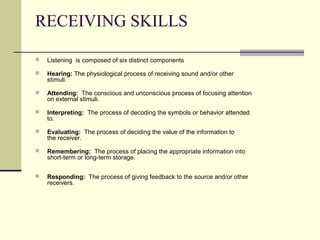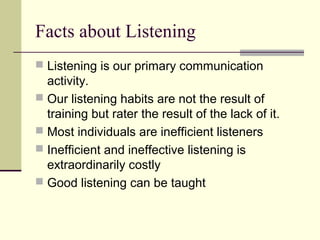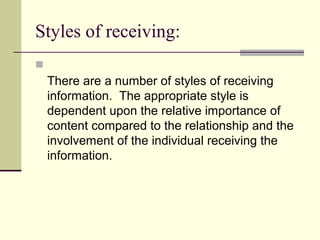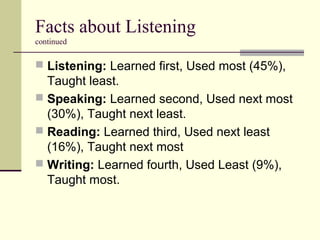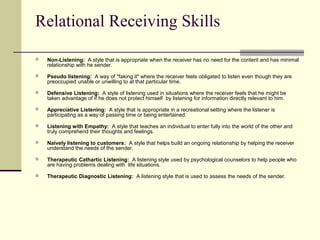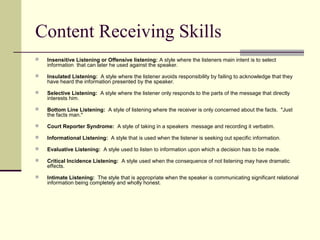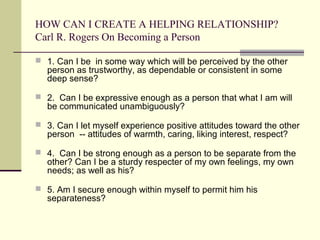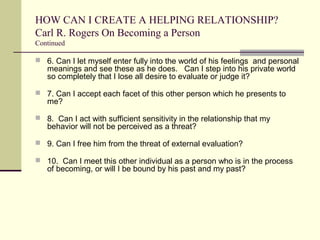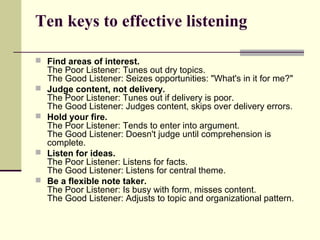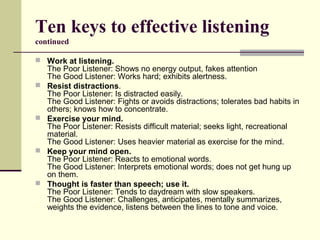This document discusses listening skills and effective listening. It describes the six components of listening as hearing, attending, interpreting, evaluating, remembering, and responding. Listening is our primary communication activity but is the skill taught the least. There are different styles of listening that are appropriate depending on the situation, such as empathetic listening or selective listening. The document also provides tips for being an effective listener, such as finding areas of interest, resisting distractions, and using slower speech as an opportunity to think ahead.

